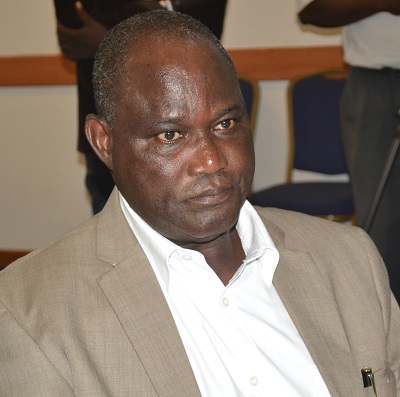
The Environmental Protection Agency (EPA) has identified air pollution as a major cause of death in the country.
According to the Agency, lower respiratory infection, mainly caused by air pollution, ranks second to malaria in the top 10 diseases in Ghana, with children under five years most affected.
Quoting a World Health Organisation’s (WHO) report, EPA’s Head of Environmental Quality, Emmanuel Appoh, indicated that 28,000 people died in Ghana in 2017 as a result of air pollution, emphasising that the figure might increase by now as the country was still struggling with quality air.
He was giving a presentation at a two-day in-house training rolled out by the EPA for selected editors and journalists across the country, on environmental and persuasive reporting, at the Institute of Environmental Studies at Amasaman, in the Ga West Municipality of the Greater Accra Region.
According to Mr Appoh, there was the need for stringent measures as a country to protect the environment and public health from air, motor vehicle emissions, effluent and noise pollution, adding that “a lot of cars are overage with some more than 10 years whose emissions are very toxic”.
He said pollution from water, air and land “is the largest environmental cause of disease and death in the world today, responsible for an estimated nine million pre-matured deaths in 2015, while water pollution caused 1.8 million deaths.
The EPA, he said, has installed 15 equipment in some parts of Accra to monitor the quality of air, and would soon install some in other regions of the country.
Mr Appoh mentioned the new Ghana Standards and said they would specify the requirements for sector-specific effluent or waste water quality and provide guidelines for discharge from various industrial facilities into the environment, ensure clean air for all Ghanaians, prevent, minimise and control noise pollution to protect public health and the environment in the immediate to long term.
The Ghana Standards, he said, would also specify the requirements for exhaust emissions of motor vehicles as well as tractors, farm equipment such as combined harvesters, mobile industrial and construction machines such as excavators.
He turned his attention to the Metropolitan, Municipal and District Assemblies, tasking them to live up to expectation on their role in controlling noise pollution in the country.
Mr Appoh reminded them of their role to ban play of any music in public for advert purpose, causing public nuisance, prohibition of music in night clubs, restaurants/drinking bars and other places of refreshments/entertainment, causing nuisance to public or residents in the area.
He urged the assemblies to be tough to ensure that churches were not sited in residential areas to cause noise pollution.
Other speakers included Mr Ransford Sekyi, acting Director, Inter Sectorial Network, EPA, Mr Michael Kwakye, Principal Programme Officer, EPA, Dr George Manful, Consultant, Mrs Jewel Kudjawu, Chief Programme Officer, EPA.
FROM KINGSLEY E. HOPE, AMASAMAN







